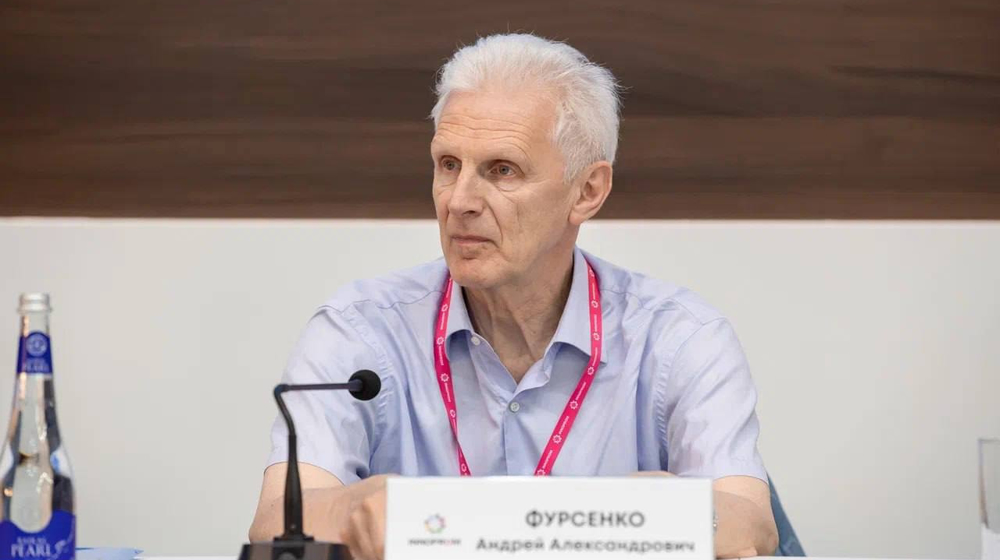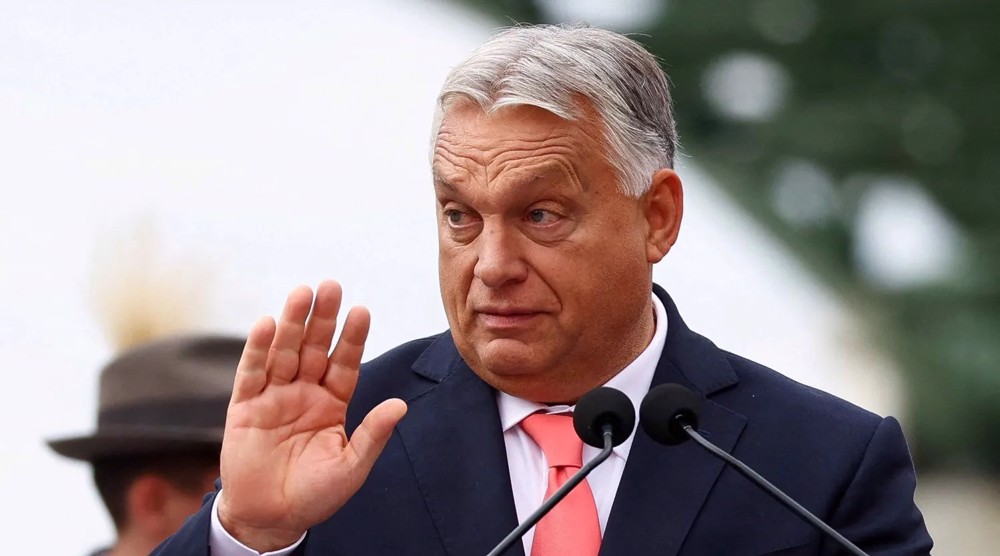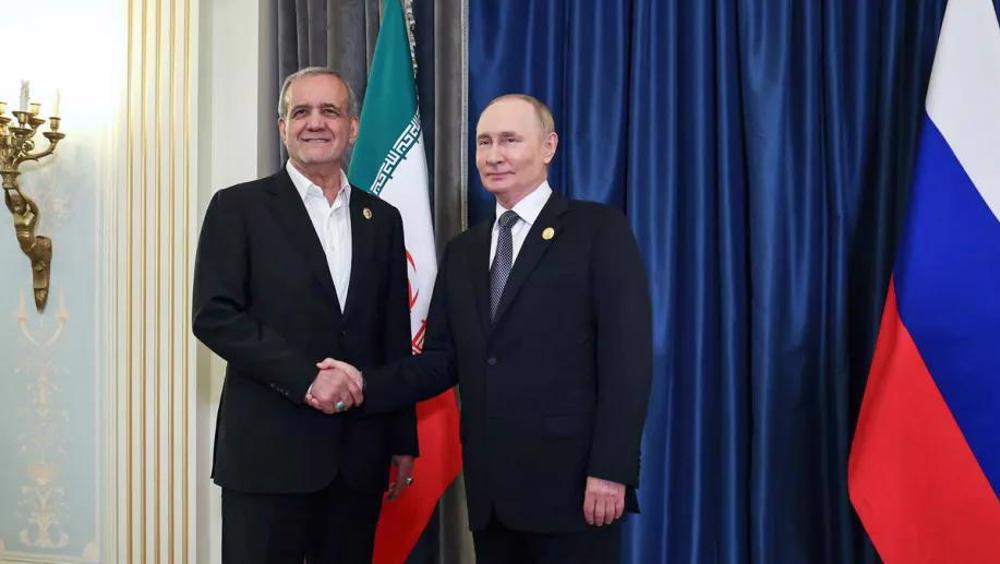US-Russia relationship ‘deteriorated to its lowest point’ in years: Putin
Russian President Vladimir Putin says that Washington-Moscow relationship has “deteriorated to its lowest point” over the past years.
He made the remarks Friday ahead of a meeting with his American counterpart Joe Biden in the Swiss city of Geneva on June 16, the first face-to-face summit between the two presidents since Biden came to office in January.
The meeting aimed at resolving US-Russia differences comes after a month of deliberations on both sides over its timing and location.
"We have a bilateral relationship that has deteriorated to its lowest point in recent years," Putin told NBC News in an interview broadcast late on Friday.
Asked about making a comparison between the US incumbent and former president Donald Trump, Putin commended the latter for his attitude and said he was someone who did not come from the standard US political establishment.
As for Biden, the Russian president hailed him as a “career man” and expressed hope that the meeting would be fruitful as the incumbent is "radically different" from Trump.
“He's spent virtually his entire adulthood in politics. Just think of the number of years he spent in the Senate. A different kind of person,” Putin said. “It is my great hope that yes, there are some advantages, some disadvantages, but there will not be any impulse-based movements on behalf of the sitting US president.”
Biden first proposed the summit in April, saying he would like to meet with Putin during his trip to Europe in June in a third country to discuss rising tensions between the two countries.
Moscow has said it has “significant differences” with Washington in how it views world affairs but is ready to discuss contentious issues with the US based on honesty and mutual respect.
Putin's last meeting with a US president was with Trump in Helsinki in 2018.
Biden said at the start of an eight-day visit to Europe this week that, "We're not seeking conflict with Russia."
"We want a stable and predictable relationship ... but I've been clear: The United States will respond in a robust and meaningful way if the Russian government engages in harmful activities."
The US has imposed waves of sanctions against Russia over the situation in Ukraine, alleged meddling in the 2016 and 2020 US presidential elections, and the recent jailing of opposition figure Alexei Navalny.
Relations between the two countries hit a new low in March after Biden, in an interview, called Putin a “killer” and said the Russian president would have to “pay a price” for what he alleged was interference in the 2020 US presidential election. Moscow has denied such allegations.
More recently, tensions escalated between the two sides over the Russian-speaking Donbass region of Ukraine, where Ukrainian troops and pro-Russia forces have been fighting since 2014.
Kiev and its Western allies accuse Moscow of having a hand in the crisis. Moscow, however, denies the allegations.
EU-US summit will be routine event: Russian envoy
Vladimir Chizhov, Russia’s permanent representative to the European Union (EU), said in an interview with state news agency, TASS, on Friday that the summit of the leaders of the 27 member states and the US will not be a full-scale event but a routine one.
"I believe that this will be a routine event. […] This will not be a full-scale event, with participation of all EU member states’ leaders. This will be a meeting with European Council President Charles Michel, with European Commission President [Ursula] von der Leyen, with, of course, participation of EU High Representative [Josep] Borrell," he said.
Chizhov also noted that the summit of EU leaders and the US will be a much smaller event compared to the NATO summit.
"The NATO summit, however, will be rather short. It is planned to last only 2.5 hours," he added.
The EU-US summit will take place on June 15 in Brussels.
Russia spars with EU, US over EU-UN cooperation
Russia reportedly sparred with the European Union and the United States at a United Nations Security Council meeting on Thursday that highlighted the strained relations between Moscow, Brussels and Washington.
EU foreign policy chief Josep Borrell told the council in a virtual address that the coronavirus pandemic “has underscored the fragility of our hyper-globalized and interdependent world.”
“The demand for multilateral solutions is much greater than the supply,” he said, pointing to “more divisions, more free-riding and more distrust than the world can afford.”
“We need global cooperation based on agreed rules because the alternative is the law of the jungle, where problems don’t get solved,” the EU foreign policy chief added. “Every day we see the cost of the absence of multilateral action in reduced access to vaccines and insufficient climate action, and peace and security crises that fester.”
Borrell blamed “the rise in power politics and ideological contests” that erode trust, stressing the EU’s commitment to the UN and to “rules-based multilateralism.”
The EU foreign policy chief said there must be pushback against “selective and self-serving approaches to multilateralism.”
Russia’s deputy ambassador Dmitry Polyansky strongly disagreed with Borrell's view of the world.
Polyansky said EU-UN cooperation should lead to strengthening multilateral approaches to global affairs but the EU more often chooses “destructive unilateral approaches over careful and patient collective work seeking compromise and constructive solutions.”
“True multilateralism entails consistent support for the central role of the United Nations,” he said. “Promoting dubious concepts like the `rules-based order’ or imposing bloc approaches and attempts to present one’s own experience and achievements as a golden standard which other countries should implement back at home — all of it bears no resemblance to multilateralism and often leads to blatant interference in the affairs of other states.”
Polyansky said EU-Russia relations “are currently at the lowest ebb in history,” and warned the European bloc against interfering in other countries’ affairs.
Iran FM arrives in Geneva for next round of indirect talks with US
Israeli strike in eastern Lebanon kills four
Six top Trump administration officials appear in Epstein files
VIDEO | Little short-term gain for US in striking Iran
VIDEO | Israel escalation and 'Board of Peace' meeting
VIDEO | Press TV's news headlines
Gaza Nasser Hospital slams MSF’s ‘unsubstantiated’ claims as medical work suspended
Jordan condemns Israeli incursions at Al-Aqsa Mosque as 'flagrant violation'











 This makes it easy to access the Press TV website
This makes it easy to access the Press TV website